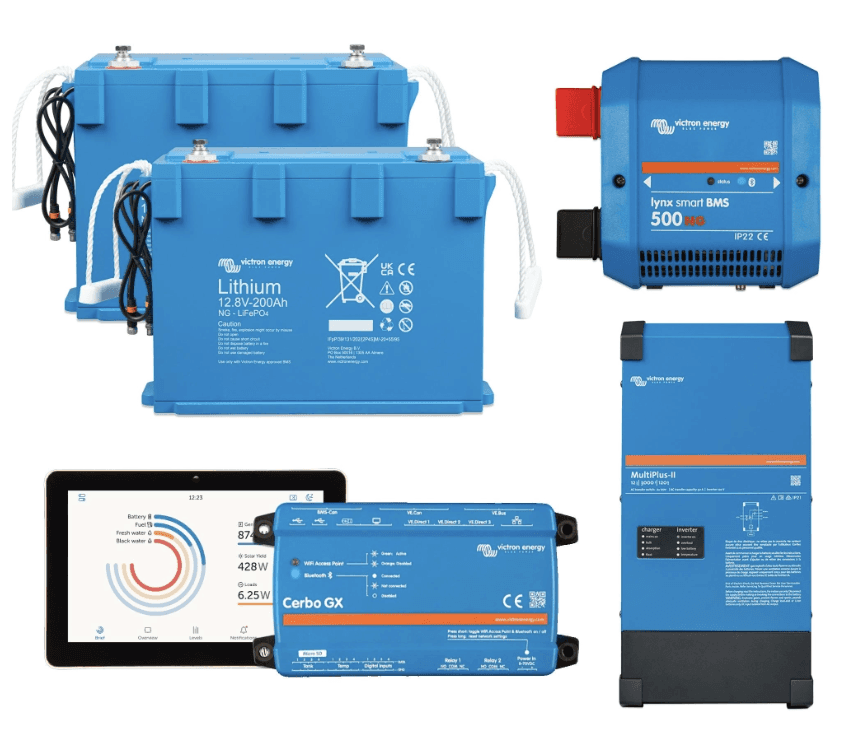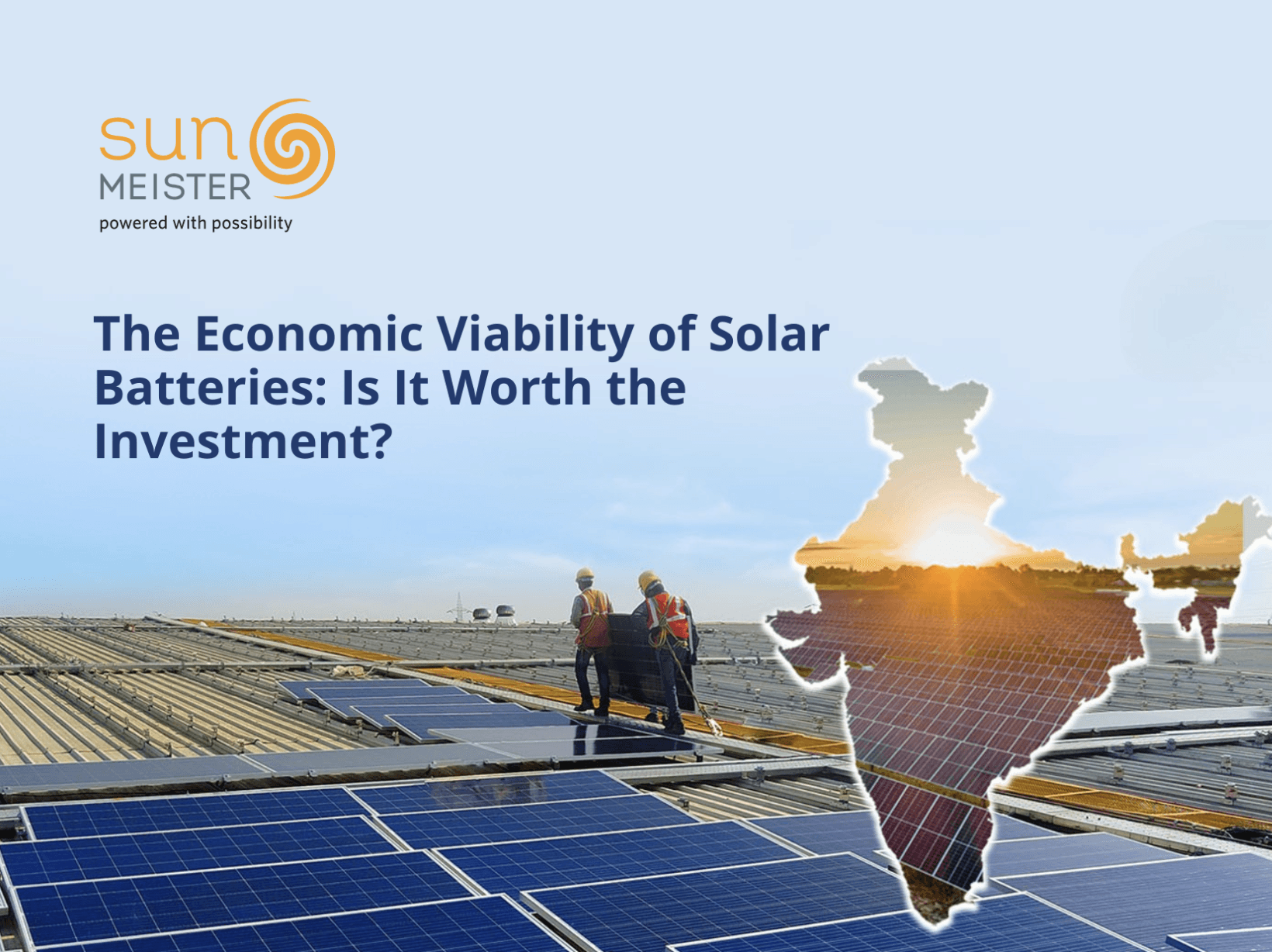India’s solar story is no longer limited to just panels on rooftops. As our dependence on clean energy grows and power outages persist in many regions, solar battery storage is emerging as the next big leap. But are these systems economically justifiable for Indian homeowners?
While the upfront costs may seem daunting, deeper analysis reveals that battery-backed solar systems offer substantial long-term financial and practical benefits, especially in a country with rising electricity tariffs, unreliable grid access, and ambitious decarbonisation goals.
What Are Solar Batteries and Why Do They Matter?
Solar batteries store excess electricity produced during the day, allowing homeowners to use that energy at night or during outages. Without storage, surplus solar power is either exported to the grid (in grid-tied systems) or wasted (in off-grid setups).
In hybrid solar systems, which combine solar panels, battery storage, and grid connectivity, users gain energy independence, power reliability, and savings on diesel or peak-hour tariffs.
Solar Battery Costs in India: A Justified Investment
The price of lithium-based solar battery systems in India typically ranges from ₹25,000 to ₹35,000 per kWh. For a mid-size household needing 5 kWh of storage, this equates to an investment of ₹1.25–1.75 lakh.
But context matters. Consider:
A typical urban household spends ₹2,500–₹4,000/month on electricity.
Solar + storage systems can reduce this by 60–90%, especially where net metering or grid unreliability is a factor.
Diesel generator backup (common in Tier 2–3 towns and gated communities) costs ₹30–₹50 per unit, while solar power costs ₹2–₹4 per unit over system lifetime.
When integrated with rooftop solar panels, battery systems can achieve full cost recovery in 6–10 years, depending on location, usage, and net metering policy.
3. Return on Investment (ROI) and Payback Period
The payback period for solar battery systems depends on factors like electricity tariffs, consumption patterns, and available subsidies. In India, the average payback period for residential solar systems ranges between 6 to 10 years. With the inclusion of battery storage, this period may extend slightly but offers added benefits like energy security and independence.
Cost Savings vs Diesel and Peak Tariffs
In areas with unreliable electricity, diesel generators are the default. However:
Diesel costs ~₹90/litre, and gensets burn ~0.4 litres/kWh.
That’s nearly ₹36/unit vs. ₹3–₹5/unit via solar + battery.
Over a year, replacing 1,000 kWh of diesel-generated power with solar can save ₹30,000–₹35,000.
Additionally, in states with time-of-day pricing (ToD tariffs), storing solar energy to use during peak hours (₹8–₹10/unit) creates additional savings.
Reference: EVpedia – Battery Backup Relevance in India
Energy Independence + Resilience = Future-Proofing
Indian households face over 1,000 hours of annual power cuts in some states (PRS Legislative Research). Solar battery systems offer:
Uninterrupted power for essential appliances like refrigerators, routers, and lights.
Reduced reliance on unpredictable DISCOM performance and rising tariffs.
Freedom from voltage fluctuations that damage appliances.
This is especially valuable in peri-urban and rural areas where grid reliability is low and electricity quality is poor.
Lower Maintenance, Higher Longevity
Today’s lithium battery systems require little to no maintenance and last 10–15 years. Unlike lead-acid batteries, they:
Offer 4,000–6,000 charge cycles.
Are lighter, faster to charge, and more efficient.
Integrate seamlessly with smart energy management systems.
Reference: AEEE – Distributed Solar with Storage
Sunmeister’s Smart Battery-Backed Systems
Sunmeister designs intelligent hybrid systems using high-quality Victron Energy components:
Victron Lithium Batteries: High energy density, long lifespan, and remote monitoring.
Victron Inverter/Chargers (MultiPlus, Quattro): Smooth switching between grid, battery, and solar.
Victron MPPT Charge Controllers: Ensure optimal solar energy harvest.
Cerbo GX + GX Touch: Enable smart control through the Victron Remote Monitoring (VRM) portal.
Explore more at Sunmeister’s Victron Product Range
These systems allow homeowners to not only save money but also enjoy resilience and control with intuitive energy dashboards and mobile access.

By integrating these components, homeowners can achieve a resilient and efficient energy system tailored to their needs.
Investing in solar battery storage systems in India is economically viable, especially when considering long-term savings, government incentives, and the added benefits of energy security and environmental sustainability. With the right system and support, homeowners can take a significant step towards energy independence.
Ministry of New and Renewable Energy. (n.d.). Grid Connected Rooftop Solar Programme. Retrieved from https://mnre.gov.in/en/grid-connected-solar-rooftop-programme/ Ministry of New and Renewable Energy+1Drishti IAS+1
Drishti IAS. (n.d.). Phase-II of Grid-Connected Rooftop Solar Programme. Retrieved from https://www.drishtiias.com/daily-updates/daily-news-analysis/phase-ii-of-grid-connected-rooftop- solar-programme Drishti IAS+2Drishti IAS+2Drishti IAS+2
Economic Times. (n.d.). Solar subsidies: Government subsidies and other incentives for installing rooftop solar system in India. Retrieved from https://economictimes.indiatimes.com/small-biz/productline/power-generation/solar-subsidies-government-subsidies-and-other-incentives-for-installing-rooftop-solar-system-in-india/articleshow/69338706.cms The Economic Times
Sunmeister. (n.d.). Victron Energy Products. Retrieved from https://sunmeister.in/victron-products

